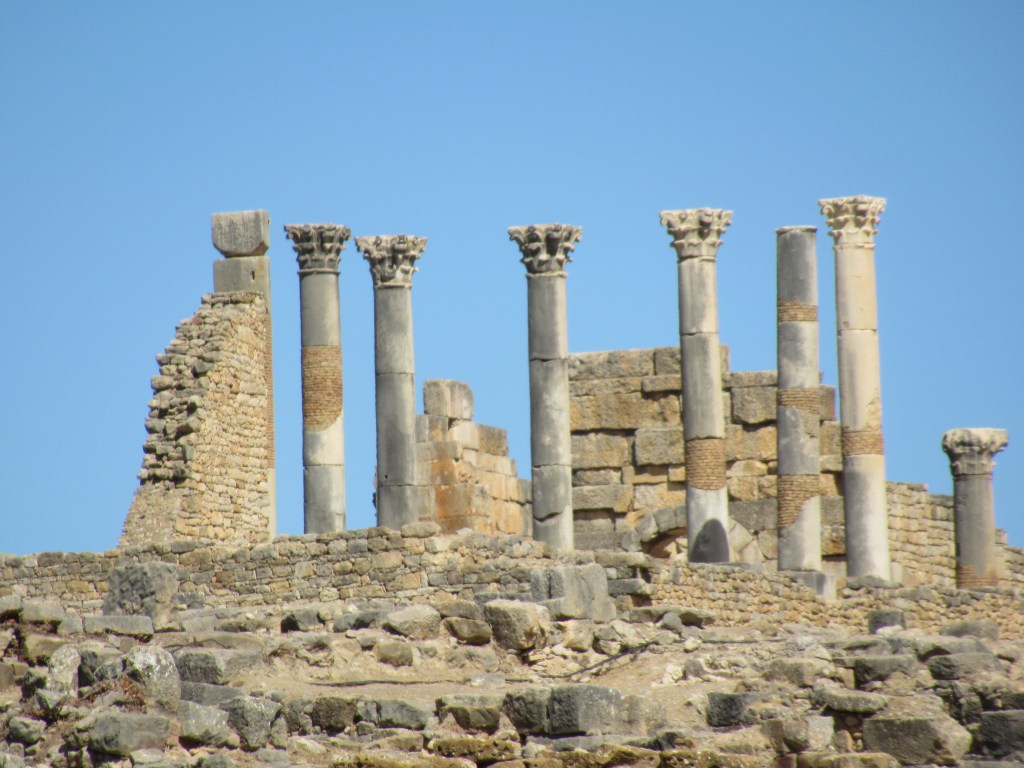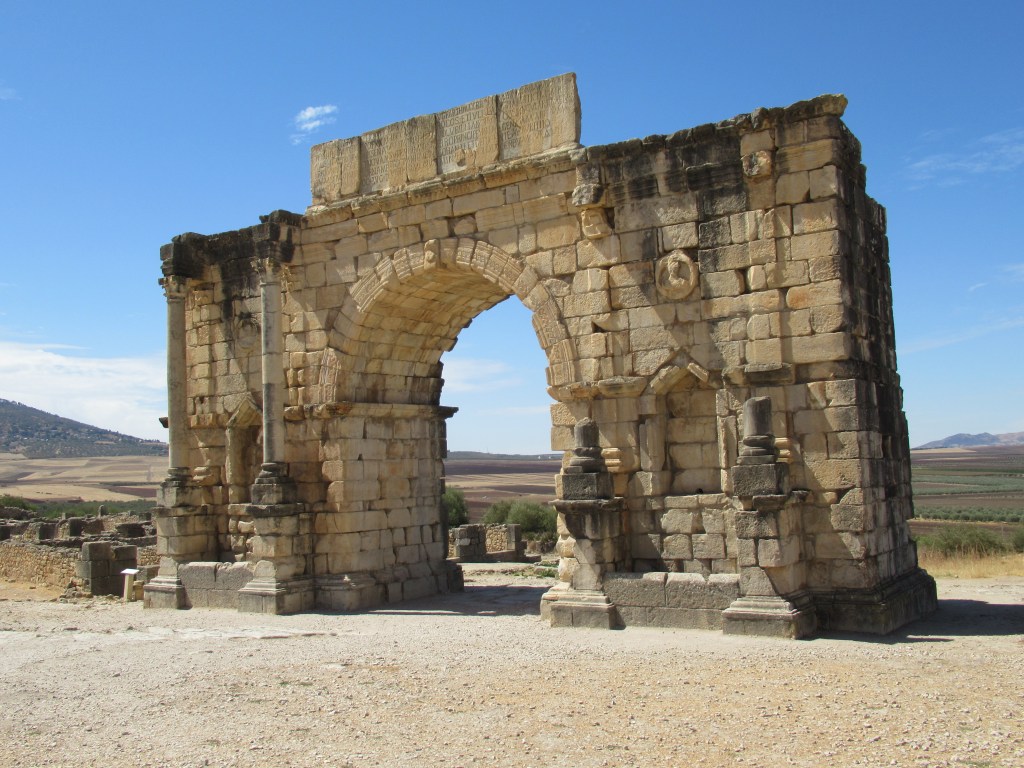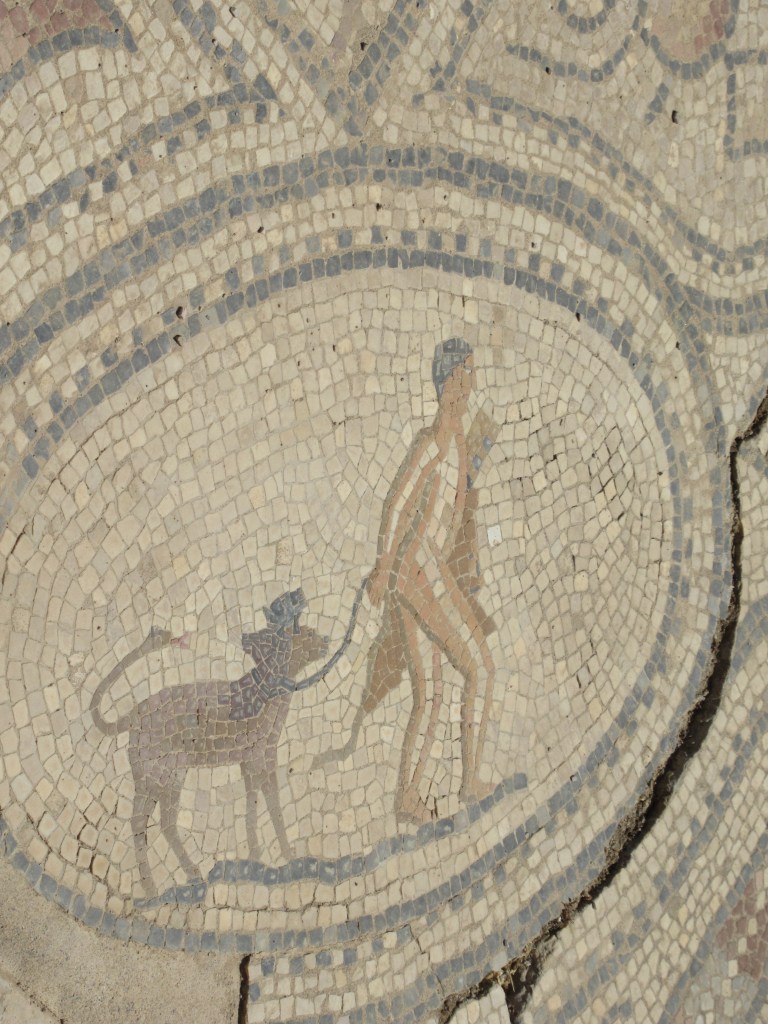
Civilizations come and go. Cities rise and fall. Even great empires flourish for a time, and then inevitably, decline. The Roman Empire, which at its height, stretched from Britain to the Middle East, from northern Europe to West Africa, is a prime example of this cycle. But, fortunately for those of us who love digging into the past, the footprints of those who have gone before us do not disappear into oblivion. Cobbled roads, broken stones, lone archways, and bits of decorated tiles remind the people of today of those past glories.
In the first century AD, in the foothills of Mr. Zerhoun in the Middle Atlas Mountains, Roman colonists, bent on expanding their empire, developed an outpost north of what is now Meknes, Morocco. Colonists pushing into new territory rarely find empty land, and Roman colonists settling the fertile plains surrounding the Khoumane and Fertase? Rivers were no exception. The Amazigh tribes had called this land home since Neolithic times, and the Carthaginans had a city in this spot since the third century BCEBut to the Roman colonists the nomadic and semi-nomadic peoples of the area were ‘Berbers” (barbarians) and the land was perfect for their expansion into Northwest Africa.
The city the Romans built is called Volubilis. It served as the capital of the Roman province of Mauritania (Land of the Moors). By the third century AD, some 20,000 people called Volubilis home, and Latin was the primary language heard in the streets.

The huge site is now in ruins, the remarkable ability of Roman engineers and artisans is evident in the city plan. The site is only 30% excavated but it is still possible to see the layout of the streets, the public baths and fountains, and the homes of the plebs and the wealthier merchants and officials. These latter homes were elaborate villas with well-preserved, beautiful mosaic tiles floors. The mosaics depict various mythological scenes that give hints of the room’s purpose and insight into Roman sense and sensibilities. The houses are now named by the mosaics found, for example, the House of Orpheus, Dionysus and the Four Seasons, or the House of the Dog.



Rome granted the residents of Volubilis Roman citizenship and temporary tax-free status, and the city was able to thrive for a couple hundred years. Eventually, however, pressure from the native Amazigh, and internal issues in Rome, caused Rome to withdraw from the city. Even without Rome’s direct oversight, the multicultural population of Volubilis, comprising Jews, Berbers, Syrians, Greeks, Christians, and Romans, continued to follow Roman practices, speak Latin, and trade in lucrative products such as olive oil.
The Roman influence remained strong for several centuries, until the Arab conquest of North Africa in the seventh century. The Arabs destroyed the churches, and moved the capital from Volubilis to Fes. Though it no longer held a position of prime importance, the city continued to be inhabited for several more centuries. Some buildings were neglected and fell into ruin. Some marble and dressed stone was recommissioned into new projects.

Then, in 1755, the huge Lisbon earthquake devastated the city. Houses crumbled, arches fell, pillars toppled. The forces of nature took only minutes to topple the magnificent legacy of the great Roman Empire..
Today the site is hot and dusty, deserted save for tourists and birds.Grasses and thorn bushes have invaded. The remaining walls are crumbling. Wind whistles through empty arches. The Romans are gone, as is their empire. The Amazigh no longer live in this ruined city (though they still inhabit the surrounding countryside.) 2000 years after colonization, the war between empire and nature continues. Nature seems bent on taking over, but even after all these years, nature still has not totally erased the memory of the civilization that reigned in these foothills.
The ruins serve to remind the people of today that all things, even Great Empires such as Rome, are ephemeral. We of America should probably keep that in mind.

